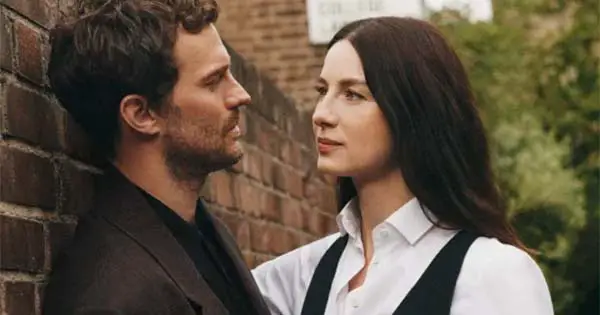Hollywood star Jamie Dornan has said bomb scares felt normal to him when he was growing up in Belfast in the 1980s and 90s.
The Fifty Shades of Gray actor lives in London with his family and now says he can understand what a strange and dangerous time it really was.
He said: “If you’re born there, and you’re raised there, you’re very cognisant of the fact that you are from a very complicated place. From the day I was born, until the day I left, people pretty much were fighting a civil war.

“I always think back to stuff that became normal, that was not normal. Like trying to meet your mates on Saturday afternoons in town and there’d been a bomb scare.”
Dornan stars in Kenneth Branagh’s 2021 movie ‘Belfast’ which is set in the city in the 1960s. It tells the story of the lives of a working-class Protestant family during the Troubles.
Caitríona Balfe plays the wife of Dornan’s character in the movie. She grew up in Co Monaghan and also has childhood memories of growing up during such a frightening time.
She said: “I remember we used to go weekly shopping in the north, and you would go through checkpoints at least once a week.
“We didn’t even really think about it until our cousins came up from the south and they would be terrified going through, because you’d have British soldiers with machine guns pointed at the car asking for your papers.”
The conflict in Northern Ireland that came to be known as the Troubles had its origins in in the partition on the country in 1921. The six counties in the north remained British, while the 26 counties in the south became independent and later emerged as the Republic of Ireland.
The reason for the partition was that the majority Protestant population in the North didn’t want to be part of an independent Ireland.
However, although the Protestants made up the majority in the North, about a third were Catholic and most of those were Nationalists.
For more than 40 years the two sides had an uncomfortable relationship, with the Protestant majority doing all it could to cement their control over all aspects of life.
Catholics were often marginalised and their minority status meant they were never able to have a meaningful say in government, with elections always returning a majority for the Unionists.
Many Catholics felt they were treated like second class citizens and discriminated in all aspects of life including jobs, housing and political influence.
This led to civil rights marches, which were often opposed by the Protestant community. Violence often broke out and reached such levels that the British government decided it had to send in troops to keep the peace.
At first the troops were treated as saviours by the Catholic community but they soon came to be seen as a force sent into maintain the Protestant ascendancy.
Violence soon became commonplace with the IRA on Nationalist side and the Ulster Volunteer Force on the Unionist side regularly carrying out murders and bombings.
This is the background against which the film Belfast is set.
The violence last for more than 30 years before finally coming to an end with the signing of the Good Friday Agreement in 1998.
Both Dornan and Balfe agree that the film is important viewing for youngsters in Belfast who didn’t grow up during the Troubles, but could become drawn into the idea of resuming the confict.
Balfe said: “There’s a young generation who are coming up, who didn’t live through the Troubles, and there is again that kind of romanticism to having a cause and fighting for a cause.
“Maybe it’s too much to ask for a film to change people’s minds, but I think it’s important that people see it.”
Dornan added: “Anything that can prove that there are no winners at the end of all that is good for the next generation to see.”
Take a look at the trailer for Belfast below.
The Troubles in Northern Ireland
Overall summary – The Troubles in Northern Ireland.
The Battle of The Bogside – changed Northern Ireland for ever.
When Taoiseach Lynch spoke out about the Troubles
Full speech by Jack Lynch on the Troubles in Northern Ireland in 1969
British Army in Northern Ireland during the Troubles – Operation Banner
Bloody Sunday 1972 – changed Northern Ireland forever
British Prime Minister David Cameron apologises for Bloody Sunday
Omagh bombing – 29 killed in attack on the Peace Process
Jamie Dornan didn’t realise he was depressed after his mum’s death
Take a look inside Fifty Shades star Jamie Dornan’s former Hollywood home
Cillian Murphy and Jamie Dornan enjoy the craic during filming
Jamie Dornan talks about laughing during sex scenes in Fifty Shades Darker
Jamie Dornan speaks about his role as a serial killer in The Fall
Fifty Shades star Jamie Dornan fears for Ireland after Brexit
Jamie Dornan says bomb scares were a normal part of his childhood growing up in Belfast